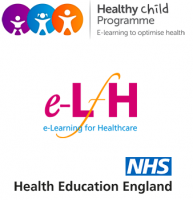Developmental Journal Visual Impairment: Developmental Principles Part 2 course for Dietitians



This session describes key developmental principles for supporting the baby and child’s progress in development and learning.
Learning Objectives
By the end of this session you will be able to:
- Outline the key vulnerable areas of development in children with visual impairment
- Identify some principles and techniques that promote developmental progress in the young child with visual impairment
- Describe areas of vulnerability and concern, such as developmental setback, and some appropriate responses
- Consider the service framework to support delivery of early support to infants and young children with vision impairment and their parents
This session describes key developmental principles for supporting the baby and child’s progress in development and learning.
Before commencing this session you should complete the following HCP sessions:
- Supporting Children's and Young People's Development (402-0076)
- An Introduction to Using Early Support Materials in Context (402-0077)
- Introducing and Using a Developmental Journal (402-0078)
- Developmental Journal Visual Impairment: Developmental Principles Part 1 (402-0079)
Naomi is a consultant clinical psychologist and neuropsychologist who specialises in children with neurodisability and their families. She has worked at Great Ormond Street Hospital for Children for over twenty years as head of neurodisability psychology and joint lead of the Developmental Vision Service and the Neurometabolic Service. In 2004 Naomi jointly led (with Alison Salt) the project to design and write the Developmental Journal for babies and children with visual impairment (VI).
Naomi is also a Reader (Associate Professor) in Paediatric Neurodisability at UCL Great Ormond Street Institute of Child Health. Her research has focused on assessment of and understanding the development and psychological needs of children with VI and she publishes and lectures extensively.
She is Chief Investigator of the UCL/GOSH Developmental Vision research programme including the OPTIMUM study (2011-2016), which has provided unique insights into the development of children with VI and evidence of the effectiveness of the Developmental Journal VI, and the NIHR DAiSY study (2015-2018) which has designed and validated new methods of assessing social communication/ autism in young children with visual impairment.
She is joint author of the Developmental Journal VI modules Part 1 and 2 and the General Developmental Principles.


Alison is a specialist in paediatric neurodisability who has been working with children with visual impairment (VI) and their parents for over 20 years. For 15 years she worked at Great Ormond Street Hospital where she was joint lead of the Developmental Vision Service and led the Autism assessment service. She was also lead Consultant paediatrician at Moorfields Eye Hospital.
Alison has specialist expertise in the management of children with visual disorders. In 2004 Alison jointly led (with Naomi Dale) the project to design and write the Developmental Journal for babies and children with VI.
Alison is also an honorary Senior Lecturer, Great Ormond Street Institute of Child Health, UCL and Associate Professor (University of Western Australia). Her research has focused on assessment of vision and understanding the development of children with VI. She was joint lead of The OPTIMUM VI study (2010 – 2016) (Naomi Dale PI) which has provided unique insights into the development of children with VI and evidence of the effectiveness of the Developmental Journal VI. Our most recent research is investigating the development and assessment of social communication skills in young children with VI. (DAiSY).
She is joint author of the module Developmental Journal for Visual Impairment (part 1 and 2).
Michelle is a cognitive neuroscientist whose interdisciplinary research spans multiple levels of observation including electrophysiological (EEG), neuropsychological and neuroimaging methods to examine the brain underpinnings of typical and atypical cognitive functioning. Her research includes work with children born preterm, children with growth hormone deficiencies and children with congenital visual impairment (VI). Since 2011 Michelle has been Senior Research Associate at UCL Great Ormond Street Institute of Child Health on the OPTIMUM study (led by Dr Naomi Dale PI and Dr Alison Salt), a longitudinal project that has provided unique insights into the development of infants and children with VI and has provided evidence of the effectiveness of the Developmental Journal VI. Michelle has expertise in designing new paradigms for infants with vision impairment, with the goal of identifying areas of neural and behavioural risk.
Michelle is very committed to the needs and wellbeing of children with visual impairment and believes that advances in developmental vision neuroscience research will optimise future outcomes for these vulnerable children. She works collaboratively with the clinicians of the Developmental Vision Service, Great Ormond Street Hospital supporting the translation of research into clinical practice.


- Child as Listener and Speaker Part 2: Verbal Aspec...
- Posted By eIntegrity Healthcare e-Learning
- Posted Date: 2024-11-23
- Location:Online
- This is the second of two sessions which describe the language processing system and the challenges ...
- Child as Listener and Speaker Part 1: Non-verbal A...
- Posted By eIntegrity Healthcare e-Learning
- Posted Date: 2024-11-23
- Location:Online
- This session is the first of two which describe the skills and knowledge that underpin the understan...
- Child Mental Health: Getting a Good Start course f...
- Posted By eIntegrity Healthcare e-Learning
- Posted Date: 2024-11-23
- Location:Online
- This session will outline the factors in the first 5 years of life that contribute to the developmen...
- Fantastic Twos - Common Behavioural and Emotional ...
- Posted By eIntegrity Healthcare e-Learning
- Posted Date: 2024-11-23
- Location:Online
- This session covers some of the behavioural problems which can result from poor mental health in pre...
- Communication Impairments Part 4: Autistic Spectru...
- Posted By eIntegrity Healthcare e-Learning
- Posted Date: 2024-11-23
- Location:Online
- This session is the last of four that looks at different speech, language and communication impairme...






